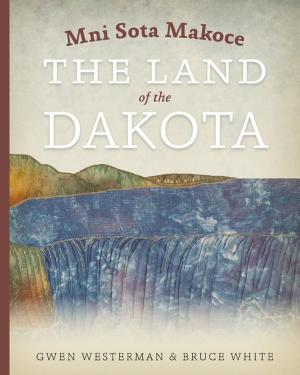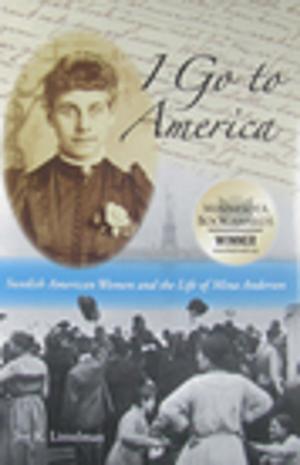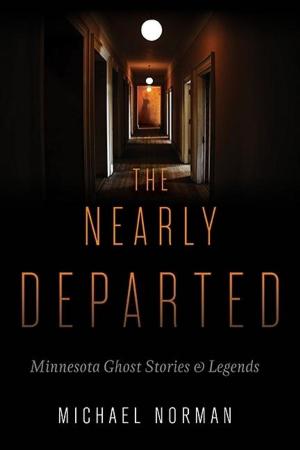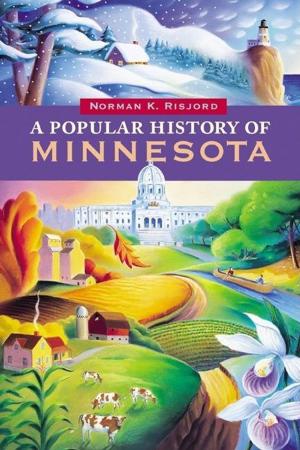My Grandfather's Knocking Sticks
Ojibwe Family Life and Labor on the Reservation, 1900-1940
Nonfiction, Social & Cultural Studies, Social Science, Cultural Studies, Native American Studies, History, Americas, Native American| Author: | Brenda Child | ISBN: | 9780873519380 |
| Publisher: | Minnesota Historical Society Press | Publication: | December 1, 2014 |
| Imprint: | Minnesota Historical Society Press | Language: | English |
| Author: | Brenda Child |
| ISBN: | 9780873519380 |
| Publisher: | Minnesota Historical Society Press |
| Publication: | December 1, 2014 |
| Imprint: | Minnesota Historical Society Press |
| Language: | English |
When Ojibwe historian Brenda Child uncovered the Bureau of Indian Affairs file on her grandparents, it was an eye-opening experience. The correspondence, full of incendiary comments on their morals and character, demonstrated the breathtakingly intrusive power of federal agents in the early twentieth century.
While telling her own family's stories from the Red Lake Reservation, as well as stories of Ojibwe people around the Great Lakes, Child examines the disruptions and the continuities in daily work, family life, and culture faced by Ojibwe people of Child's grandparents' generation—a generation raised with traditional lifeways in that remote area. The challenges were great: there were few opportunities for work. Government employees and programs controlled reservation economies and opposed traditional practices. Nevertheless, Ojibwe men and women—fully modern workers who carried with them rich traditions of culture and work—patched together sources of income and took on new roles as labor demands changed through World War I and the Depression.
Child writes of men knocking rice at wild rice camps, work customarily done by women; a woman who turns to fishing and bootlegging when her husband is unable to work. She also recounts that one hundred years ago in 1918-1919, when the global influenza pandemic killed millions worldwide, including thousands of Native Americans, a revolutionary new tradition of healing and anti-colonial resistance emerged in Ojibwe communities in North America: the jingle dress dance. All of them, faced with dispossession and pressure to adopt new ways, managed to retain and pass on their Ojibwe identity and culture to their children.
When Ojibwe historian Brenda Child uncovered the Bureau of Indian Affairs file on her grandparents, it was an eye-opening experience. The correspondence, full of incendiary comments on their morals and character, demonstrated the breathtakingly intrusive power of federal agents in the early twentieth century.
While telling her own family's stories from the Red Lake Reservation, as well as stories of Ojibwe people around the Great Lakes, Child examines the disruptions and the continuities in daily work, family life, and culture faced by Ojibwe people of Child's grandparents' generation—a generation raised with traditional lifeways in that remote area. The challenges were great: there were few opportunities for work. Government employees and programs controlled reservation economies and opposed traditional practices. Nevertheless, Ojibwe men and women—fully modern workers who carried with them rich traditions of culture and work—patched together sources of income and took on new roles as labor demands changed through World War I and the Depression.
Child writes of men knocking rice at wild rice camps, work customarily done by women; a woman who turns to fishing and bootlegging when her husband is unable to work. She also recounts that one hundred years ago in 1918-1919, when the global influenza pandemic killed millions worldwide, including thousands of Native Americans, a revolutionary new tradition of healing and anti-colonial resistance emerged in Ojibwe communities in North America: the jingle dress dance. All of them, faced with dispossession and pressure to adopt new ways, managed to retain and pass on their Ojibwe identity and culture to their children.















